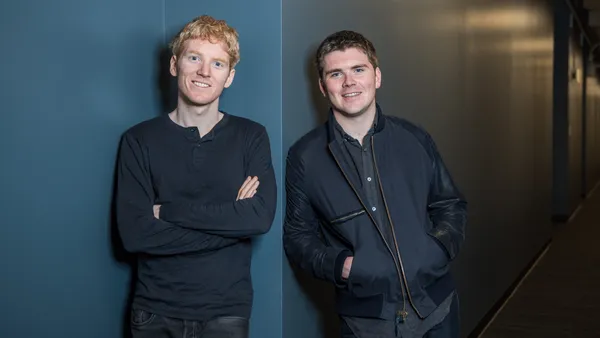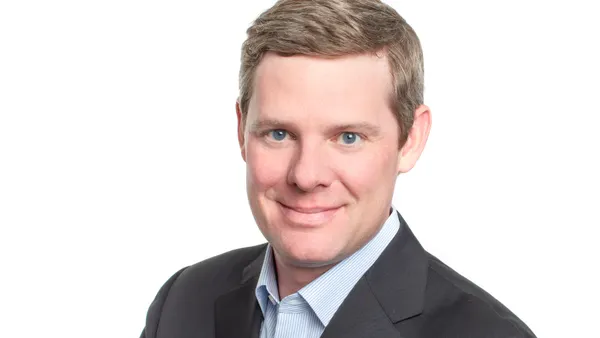Digital payments pioneer PayPal once again cut back its growth goals for this year, and beyond, when it reported first-quarter earnings Wednesday.
The San Jose-based company told analysts on the earnings conference call that the macroeconomic environment, including inflation, the COVID-19 pandemic and supply chain constraints, will mean PayPal doesn't boost business as fast as it had predicted.
In February, when the company’s executives reported fourth-quarter results, they disclosed PayPal won’t achieve a prior goal of reaching 750 million active users by 2025, noting it ended last year with 426 million. In tandem, they cut back earlier revenue growth projections for this year to between 15% and 17%, from about 18%.
Now, CEO Dan Schulman said Wednesday that the company expects revenue growth this year of between 11% to 13%. The company ended the first-quarter with 429 million accounts and will have about 436 million by the end of the year, he said.
Schulman took responsibility for letting PayPal investors down. The company's stock has plummeted about 70% in recent months since reaching a 52-week high in July 2021.
"I want to begin my prepared remarks by acknowledging that our shareholders expect more from us than our track record over the past several quarters has delivered and I take full accountability for that," Schulman said during the call.
"Forecasting normalized consumer e-commerce spending as we come out of the pandemic is exceedingly complex," Schulman said. "As a result, we believe it is prudent to lower our 2022 guidance and reevaluate our medium-term outlook."
The revamped outlook comes just weeks after PayPal's Chief Financial Officer John Rainey said he would leave the company next month to join retail juggernaut Walmart in June in the same role. He will be succeeded for now by Gabrielle Rabinovitch, who is PayPal’s senior vice president for corporate finance and investor relations and will become interim CFO.
"We're not immune to some of these economic vagaries that we're going through right now," Rainey told analysts. "But that should not take away from how you think about our business longer-term.”
Schulman said the company would focus its future business strategy on increasing digital wallet and checkout payment services. "Those are the two things that we really need to double down on," Schulman said on the call.
When the company abandoned its new account growth target earlier this year, it said it would seek instead to focus on increasing engagement with existing PayPal accountholders.
Last year, the company launched a "super app" with a portfolio of financial services in an enhanced digital wallet.
With respect to checkout services, PayPal has been trying to increase the availability and appeal of those services, including via its Venmo unit, but it faces mounting competition, from top players such as Stripe and Square, but also from upstart fintechs like Bolt.
"No stock in payments has been under more criticism than PayPal. 1Q results showed us why: they were marked by a broad-based cut to FY22 guide," Mizuho Securities Analyst Dan Dolev said in a note Thursday to clients following the first-quarter report. "With slowing (net new accounts), disappointing Venmo stats, and questions regarding the future of the checkout button, we believe management has some explaining to do."
PayPal reported that its first-quarter net income was chopped almost in half to $509 million, relative to the same quarter last year. Revenue climbed 7.5% to $6.48 billion as total payment volume jumped 15%.
Meanwhile, the company's expenses rose 16% to $5.78 billion. PayPal has been trying to pare its costs recently. It reportedly trimmed a research team and plans to close down a San Francisco office.
Those cutbacks come even as PayPal's top brass have rewarded themselves with richer compensation packages, albeit mainly in the form of stock awards tied to future share performance.













